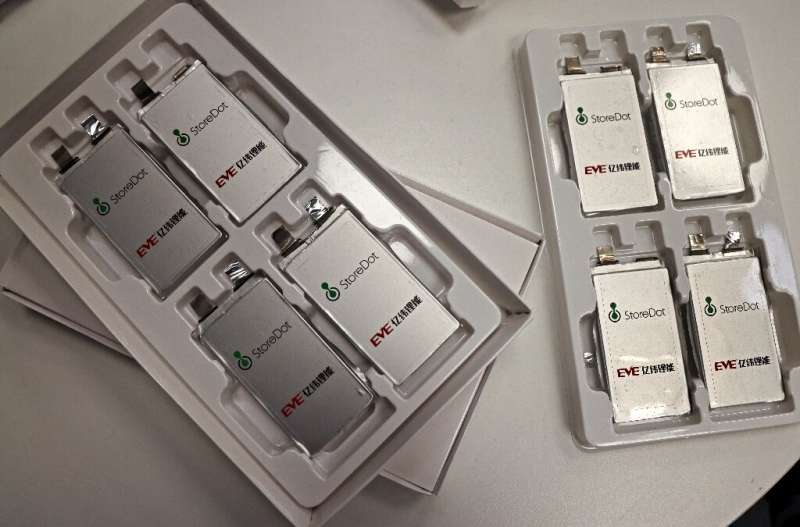For those interested in buying an electric car, recharging time is one of the main concerns. Being able to regain range in the shortest possible time is one of the objectives of the Israeli company Storedot. After a few years of development, Stored has begun demonstrations to customers of the capabilities of its technology and is already carrying out a significant production of the prototypes that are being sent to interested customers.
As the company commented in a press release, “We are totally changing the entire experience of the driver of an electric vehicle by attacking a factor such as the problem of fear of running out of range, going from a recharge of hours to one of a few minutes.”
Backed by large investors such as German manufacturer Mercedes, British oil company BP, and tech giants Samsung and TDK, this Herzliya-based company near Tel Aviv manages to produce 100 batteries each week shipped to customers who are interested in adopting it.
At the moment, they admit that the technology is not ready for industrial production and has a few years of development ahead of it. But they have indicated that they hope to start a somewhat higher production, which will allow expanding the number of tests, with a new line that will come into operation at the end of this year or the beginning of next.
Storedot has indicated that the work with the technology has focused on developing the materials and the chemistries to achieve their objective of loading speed; now, they are working on completing a reduction in the cost of producing the second generation.
They have also added that they work in parallel in developing the facilities that will be in charge of production, to accelerate a process from the beginning of the first works until the start of the commercial phase that they indicate is around five years. Something that they hope to reduce thanks to the design of production lines capable of achieving mass production.
As we recall, the key to Storedot’s proposal is based on a configuration of cells in sheets, formed by a combination of nanomaterials and organic compounds that caused “non-traditional reactions.” Fast charging occurs thanks to the transfer of ions from an anode to a cathode at a speed that was impossible before these materials were available. According to its developers, a configuration allows recharges at more power and with more security.
But being able to recharge a battery in five minutes will not only depend on its design. It will also require a charging network capable of offering high powers above even the figures used today for ultra-fast recharging, between 150 and 350 kW.
For those responsible for Storedot, this will mean that operators will have to invest points of between $1,500 and $10,000, depending on capacity. This will allow them to reach powers now used in industrial applications, such as recharging buses and electric trucks capable of getting 500 or 1,000 kW.
Figures that will allow us to achieve the dream of recharging in practically the same time of refueling a car with a combustion engine, but as we can see, different factors will need to be aligned, not only a battery capable of accessing said power but also a network of recharge with sufficient strength and an electrical network adapted for this type of “mega-fast” recharge and even do so at a reasonable cost that limits it to minority market niches.

